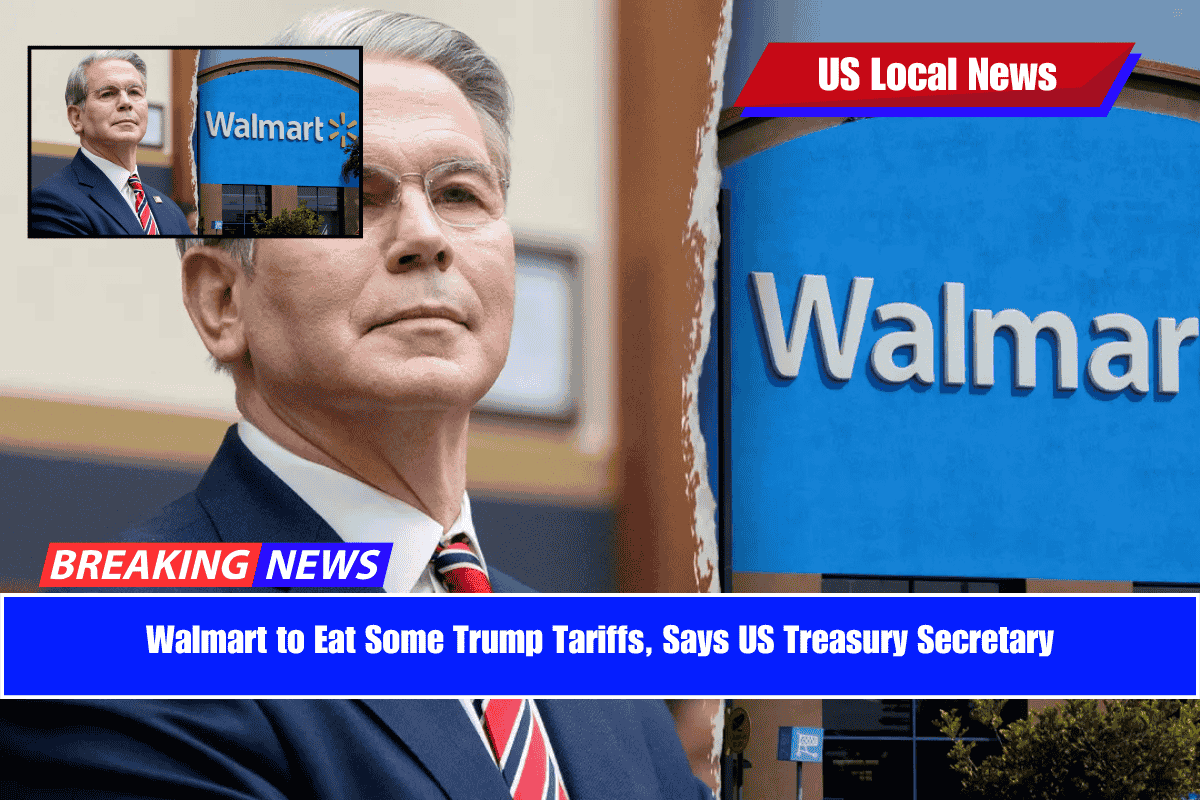The US retail giant Walmart has agreed to absorb part of the tariffs imposed by President Donald Trump, according to the president’s treasury secretary, Scott Bessent. This comes after Trump demanded that Walmart should not pass the tariff costs to its customers.
What Did Walmart Say About the Tariffs?
Walmart earlier said it had no choice but to raise prices for consumers starting later this month because it could not fully absorb the cost of tariffs on imported goods. These tariffs, introduced by Trump’s administration, have caused disruptions in global markets and increased costs for many companies.
However, Scott Bessent said on Sunday that in a personal phone call with Walmart’s CEO, Doug McMillon, the company assured it would “eat some of the tariffs” just as it did in previous years (2018, 2019, and 2020).
Walmart’s spokesperson did not comment on private conversations but confirmed the company’s position had not changed, and the call was arranged before Trump’s public demand.
Why Did Trump Want Walmart to Absorb Tariffs?
President Trump was angry that Walmart planned to raise prices. He posted on his social media platform, Truth Social, demanding the company to “eat the tariffs” and not increase costs for customers. Trump believes American companies should not put the tariff burden on consumers.
What Did Walmart’s Executives Say?
During Walmart’s recent earnings call, Doug McMillon said the company was trying to keep prices low but could not cover all the extra costs from the tariffs because retail margins are very thin.
Walmart’s Chief Financial Officer, John Rainey, told CNBC that while Walmart is known for its low prices, the new tariffs were more than the company could handle alone. He warned customers to expect higher prices by late May and even more increases in June.
Background on Trump’s Tariff Policy
Trump announced heavy tariffs on many countries starting April 2, calling it “liberation day”. He accused several nations of unfairly taking advantage of the US in trade. His tariffs targeted a wide range of countries, including close allies and distant territories.
The plan was meant to force better trade deals but instead caused confusion, rising prices, stock market drops, and slower economic growth. Trump later reduced tariffs on China for 90 days, calling it a “total reset” of trade relations, but maintained new tariffs on other countries.
What’s Next for US Trade Talks?
Scott Bessent said on CNN that the US is focusing on its 18 most important trading partners. He expects ongoing talks that could lead to regional trade agreements, rather than deals with all 150 countries that had shown interest.











Leave a Reply